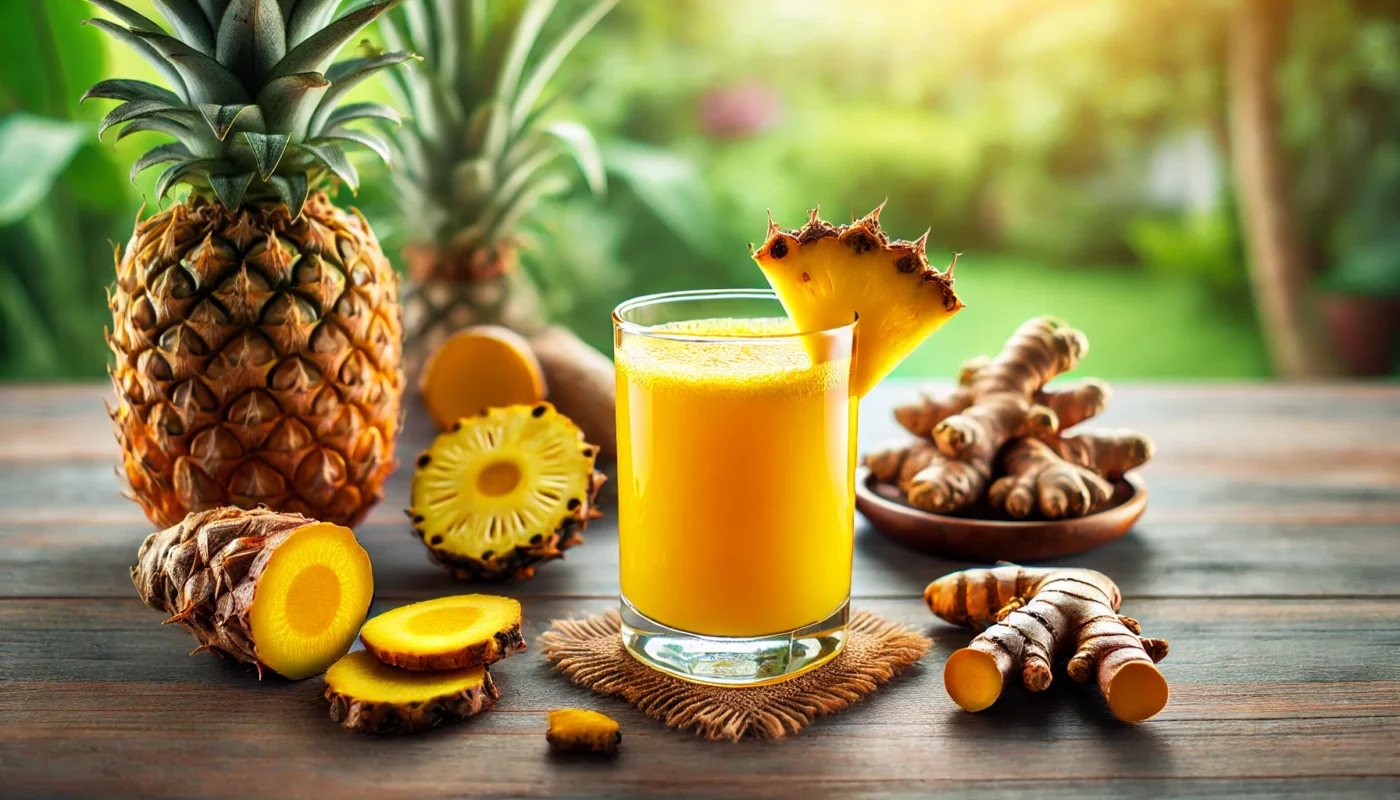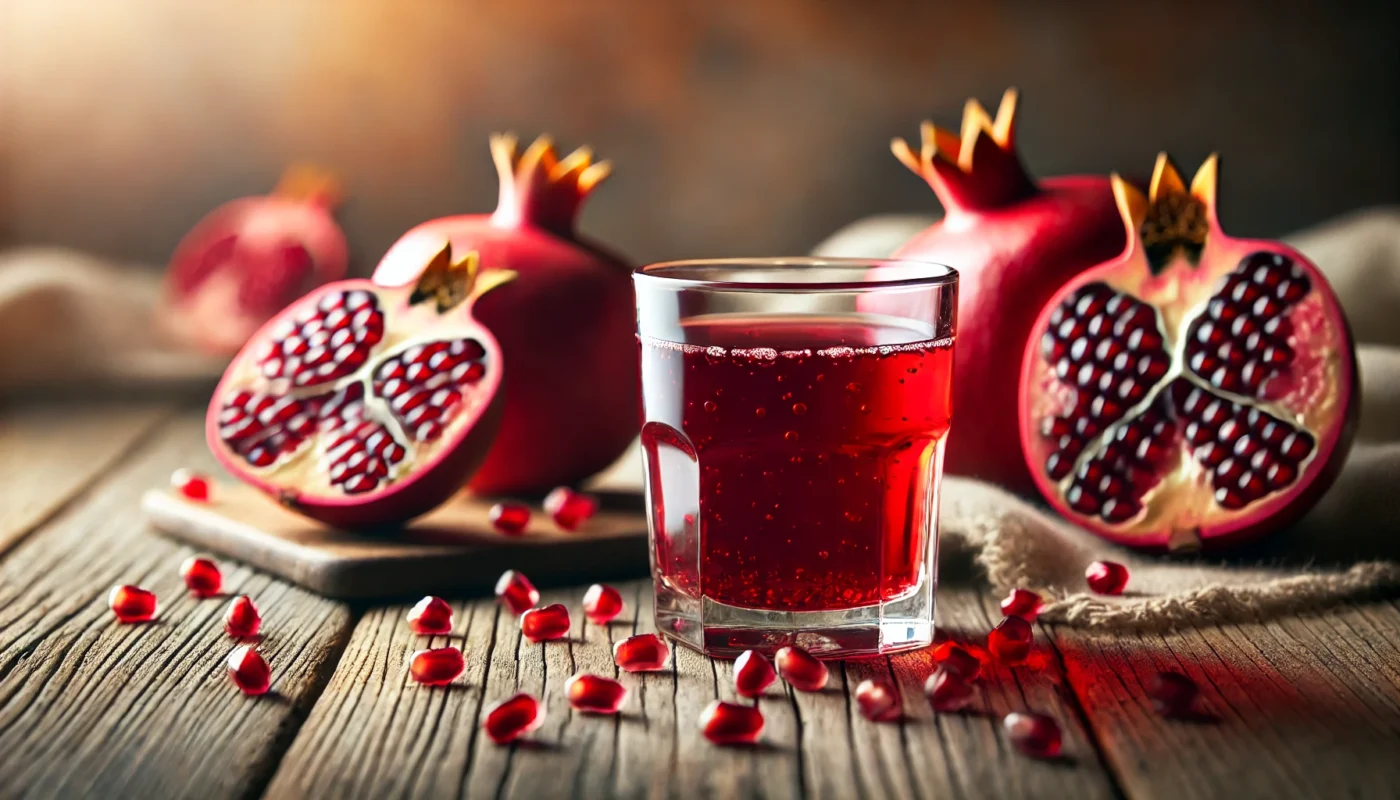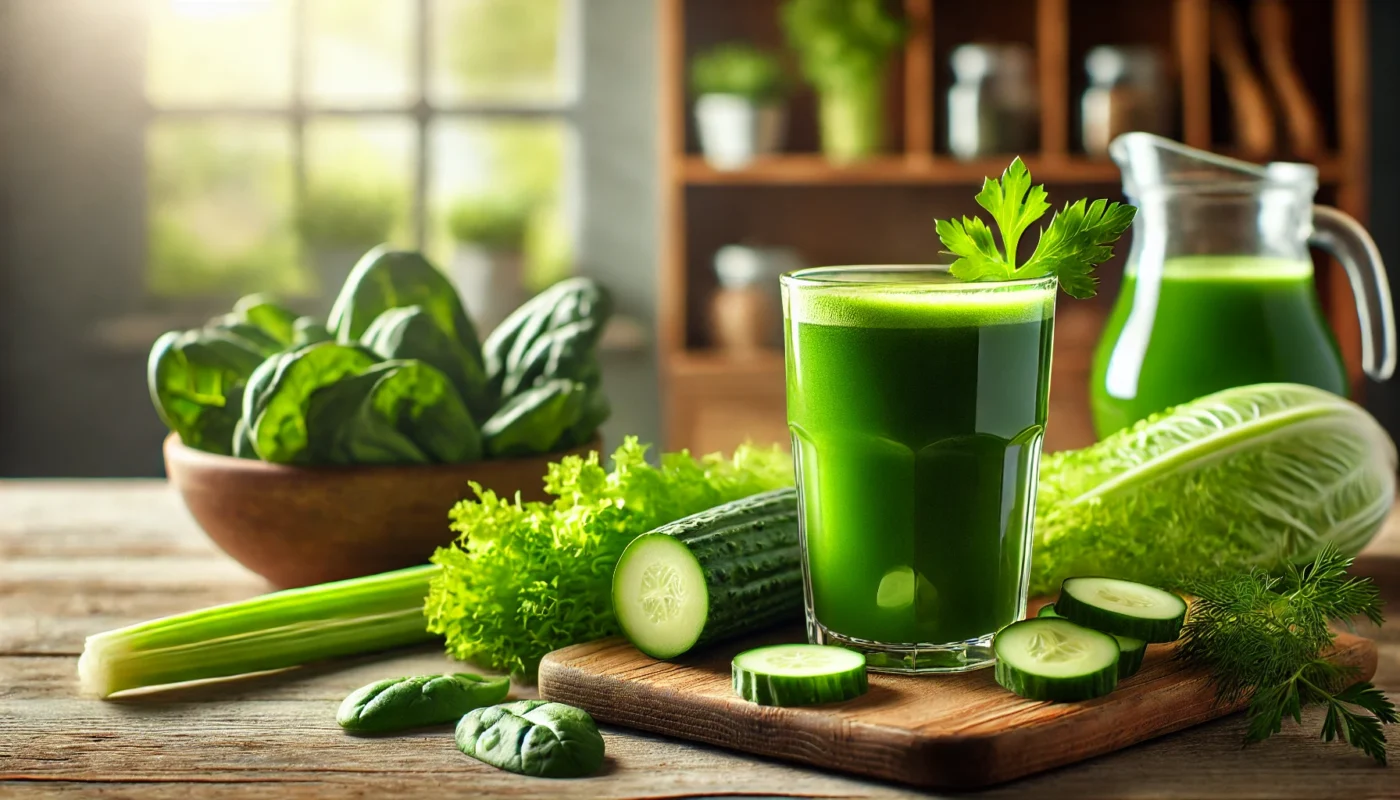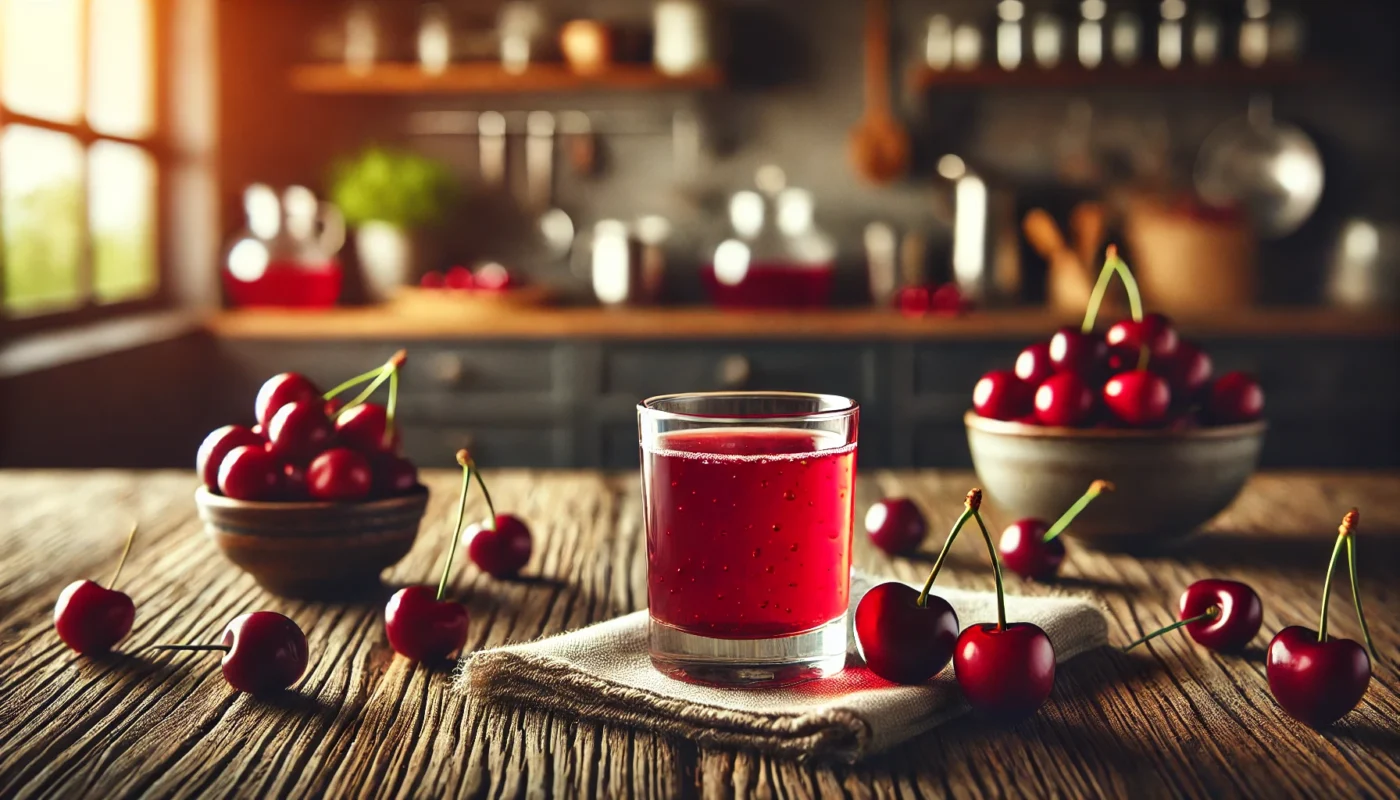Arthritis is a common ailment that affects millions worldwide. It’s characterized by joint pain and inflammation, often leading to reduced mobility and quality of life.
Many people with arthritis turn to medications for relief. However, these can come with side effects and may not always provide complete relief. This has led many to seek alternative or complementary approaches to manage their symptoms.
One such approach is dietary modification. Research suggests that certain foods and drinks can help alleviate arthritis symptoms. Among these, certain juices have gained attention for their potential anti-inflammatory properties.
This article will delve into the world of juicing for arthritis. We’ll explore the science behind how certain juices can help reduce inflammation and alleviate joint pain. We’ll also provide practical advice on how to incorporate these juices into your daily routine.
Whether you’re a fitness enthusiast, a health enthusiast, or a medical patient, this guide aims to provide you with a comprehensive understanding of this holistic approach. We’ll also offer practical tips and strategies to help you manage your arthritis symptoms effectively.
So, if you’re wondering what juice is good for arthritis, or if pineapple is good for arthritis, you’re in the right place. Let’s dive in and explore the best juices for arthritis and joint pain.
You may also like: Top Supplements to Speed Up Injury Recovery
Understanding Arthritis and the Role of Diet
Arthritis is not a single disease but a term that covers more than 100 different types. The most common types are osteoarthritis and rheumatoid arthritis. Both involve inflammation of the joints, causing pain, stiffness, and swelling.
The role of diet in managing arthritis has gained significant attention. What you eat can influence inflammation levels in your body. This makes diet an important factor in managing arthritis symptoms.
Anti-inflammatory foods can be particularly beneficial. These foods can potentially reduce inflammation and alleviate pain. Conversely, certain foods may increase inflammation and should be limited.
Dietary changes can be empowering for those with arthritis. By selecting the right foods and drinks, individuals can take control over their symptoms. Here are a few dietary tips for managing arthritis:
- Incorporate more fruits and vegetables.
- Focus on whole grains instead of refined grains.
- Include omega-3 fatty acids, found in fish.
- Choose lean proteins over red meat.
- Minimize processed and sugary foods.
Many fruits and vegetables contain compounds that fight inflammation. Juicing can be an effective way to increase your intake of these nutrients. This is especially helpful for those who struggle to consume enough produce daily.
It’s important to consider both the nutritional content and the flavor of juices. Juices rich in antioxidants and vitamins can support joint health. Additionally, making these changes ensures a balanced diet that supports overall well-being.
The Science Behind Anti-Inflammatory Juicing
The notion of using juices for health benefits is backed by research. Scientific studies have explored the anti-inflammatory effects of various fruits and vegetables.
Inflammation plays a central role in arthritis symptoms. Certain plant compounds have been found to possess potent anti-inflammatory properties. These compounds, such as flavonoids and anthocyanins, are abundant in many fruits.
When fruits and vegetables are juiced, these beneficial compounds become concentrated. This may enhance their effects on reducing inflammation and pain. Consuming these juices regularly can thus support joint health.
Pineapple, for example, contains bromelain, a compound with known anti-inflammatory effects. Similarly, tart cherry juice is rich in anthocyanins, which can help reduce swelling.
Additionally, juices high in antioxidants can inhibit enzymes linked to joint damage. Antioxidants neutralize free radicals, reducing oxidative stress—a contributor to inflammation in arthritis.
By understanding the science behind these natural compounds, individuals can make informed choices. This empowers them to integrate juices with specific benefits into their diet. Juicing isn’t a cure but a complementary approach to managing arthritis. It offers a natural way to potentially ease pain and improve quality of life.

The Best Juices for Arthritis Pain Relief
Incorporating certain juices into your diet can support joint health and relieve arthritis symptoms. These juices not only add essential nutrients but also provide concentrated anti-inflammatory compounds.
Juices like pineapple, tart cherry, and pomegranate are among the best for reducing inflammation. They are rich in specific enzymes and antioxidants that target joint pain and swelling. When consumed regularly, these juices can become a part of an effective strategy for managing arthritis.
Each type of juice has unique benefits, making it worthwhile to include a variety. Beyond simply drinking the juices, consistency is key to achieving long-lasting relief. Let’s delve into specific juices and their benefits for arthritis management.
Pineapple Juice: Bromelain’s Benefits for Arthritis
Pineapple juice is well-known for its refreshing taste and health benefits. This tropical fruit contains bromelain, an enzyme with powerful anti-inflammatory properties. Bromelain has been studied for its potential to reduce pain and swelling in arthritis.
The enzyme works by breaking down proteins that contribute to inflammation. This action helps ease joint discomfort. Many find relief by incorporating pineapple juice into their daily diet. Studies suggest that bromelain may be particularly effective in reducing knee pain.
To maximize benefits, opt for fresh pineapple juice rather than store-bought varieties. Fresh juice preserves higher levels of bromelain and nutrients. For an even greater impact, combine pineapple juice with other anti-inflammatory ingredients like ginger.
Tart Cherry Juice: Anthocyanins and Arthritis
Tart cherry juice is increasingly popular among those seeking natural relief from arthritis pain. This juice is rich in anthocyanins—potent antioxidants with impressive anti-inflammatory effects. These compounds help reduce both pain and stiffness in the joints.
Research has shown that tart cherry juice can significantly decrease inflammation markers in the body. Drinking this juice may lessen the frequency of arthritis flare-ups. This makes it an attractive option for those with chronic joint conditions.
For optimal results, consume tart cherry juice consistently. A routine of two daily servings has been associated with notable improvements in symptoms. Pairing this juice with a healthy diet and lifestyle can yield the best outcomes.
Additionally, tart cherry juice offers other health benefits, such as improved sleep quality. This can further assist those with arthritis, as adequate rest promotes healing and reduces stress on the joints.
Pomegranate Juice: Antioxidants for Joint Health
Pomegranate juice stands out for its high antioxidant content. These antioxidants protect the body’s cells from damage caused by oxidative stress. This protection is crucial for those suffering from arthritis, as oxidative stress can exacerbate joint pain and inflammation.
The juice is also believed to inhibit enzymes that damage the cartilage, which is vital for joint health. By preserving cartilage, pomegranate juice may help slow the progression of arthritis.
Including pomegranate juice as part of a balanced diet can provide long-term benefits. It’s also linked to improved heart health, making it a comprehensive choice for overall wellness.
For maximum potency, choose organic pomegranate juice to avoid exposure to chemicals. Drinking a small glass daily can contribute to a healthier inflammatory response, easing discomfort in the joints.
Green Vegetable Juices: Nutrient-Rich Options
Green vegetable juices are packed with nutrients that support joint health. These juices are rich in antioxidants, vitamins, and minerals, offering numerous benefits for arthritis sufferers. They also contain phytochemicals that help reduce inflammation.
Leafy greens like spinach, kale, and celery can be blended into delicious juices. These vegetables are high in vitamin K, which has been linked to reduced inflammation in the body. Regular intake of green juices can provide essential nutrients lacking in many diets.
The high fiber content in these vegetables also aids digestion and overall health. This can be particularly beneficial for those with arthritis-related discomfort. By supporting digestive health, green juices help the body efficiently absorb nutrients.
To enhance the benefits, mix different greens for a variety of nutrients. Add flavor and additional anti-inflammatory properties with ingredients like ginger or lemon. This variety can keep your juicing routine interesting while promoting joint health.
Ginger and Turmeric Juices: Spicing Up Relief
Ginger and turmeric are powerful spices renowned for their anti-inflammatory benefits. These roots can be juiced to create a potent drink that aids in relieving arthritis symptoms. Ginger contains compounds called gingerols, which have been shown to reduce inflammation.
Turmeric’s active compound, curcumin, is a strong anti-inflammatory agent. It works by blocking inflammatory pathways, thus reducing joint pain. Together, ginger and turmeric juices offer a natural remedy for arthritis.
Regular consumption of these juices can support joint function and mobility. They can also boost the immune system, offering protection against other ailments. This dual benefit makes them an excellent addition to any arthritis-focused diet.
For best results, prepare fresh juice using organic ginger and turmeric. This ensures you receive the most potent dose of their active ingredients. Enjoying these juices alongside other healthy practices can enhance their impact.
Beetroot Juice: Circulation and Inflammation
Beetroot juice is celebrated for its ability to improve circulation and reduce inflammation. Rich in nitrates, beetroot improves blood flow, which can benefit joints by delivering essential nutrients and oxygen.
This juice also contains antioxidants like betalains, which possess anti-inflammatory properties. By reducing inflammation, beetroot juice may alleviate joint pain and stiffness associated with arthritis.
Incorporating beetroot juice into your routine can foster a healthier vascular system. Improved circulation aids in the reduction of inflammation at a systemic level, potentially easing arthritis symptoms.
For the best results, opt for fresh beetroot juice and consider mixing it with other anti-inflammatory juices. Combining it with flavors like lemon or apple can enhance its taste and offer additional health benefits. Regular consumption may lead to noticeable relief from joint discomfort and improved mobility.

Practical Juicing Tips for Arthritis Management
To effectively manage arthritis with juicing, use fresh, organic produce whenever possible. This ensures the highest nutrient content and avoids harmful pesticides. Additionally, it’s important to drink the juice soon after preparation to preserve its nutritional value.
Incorporate variety in your juicing regimen to balance nutrient intake. A mix of fruit and vegetable juices can provide diverse vitamins and anti-inflammatory agents. Remember to drink these juices alongside a well-rounded diet to support joint health.
Juicing Recipes for Arthritis
Creating delicious and health-focused juice blends can be easy and rewarding. Here are some arthritis-friendly recipes that incorporate powerful anti-inflammatory ingredients:
- Pineapple Turmeric Bliss:
- 1 cup fresh pineapple chunks
- 1/2 inch piece of turmeric root
- 1/2 lemon, peeled
- A pinch of black pepper
- Cherry Beet Vitality:
- 1 cup tart cherry juice
- 1 medium beetroot, peeled
- 1 apple, cored
- 1-inch piece of ginger root
- Pomegranate Green Boost:
- 1/2 cup pomegranate seeds
- 1 cucumber
- 2 handfuls of spinach
- 1/2 lime, peeled
- Ginger Celery Rejuvenation:
- 4 celery stalks
- 1-inch piece of ginger root
- 1 pear, cored
- A handful of mint leaves
When preparing these juices, it’s best to use a high-quality juicer for optimum extraction of nutrients. Adjust the ingredients as needed to suit your taste preferences. Drinking these freshly made juices regularly can help manage arthritis symptoms naturally.
Integrating Juicing into Your Daily Routine
To make juicing a seamless part of your day, plan ahead. Prepare your ingredients in advance, such as washing and chopping fruits and veggies. This minimizes prep time and encourages consistency.
Consider starting your morning with a nutrient-packed juice for an energizing start. Or, have a juice as an afternoon pick-me-up. Experiment to find the best time that fits your lifestyle and maximizes the benefits. Consistency is key, so aim to integrate juicing into your routine most days of the week.
Precautions and Considerations When Juicing
While juicing offers many benefits, there are some precautions to keep in mind. It is vital to consume the juices in moderation, as excessive intake may lead to unintended health issues. Individual tolerance to specific juices may vary.
Consider food allergies and sensitivities before trying new juice ingredients. Some people may experience digestive discomfort with certain fruits or vegetables. Always listen to your body and adjust your choices as needed.
Balancing Sugar Intake and Whole Foods
Juicing can sometimes result in high sugar intake, especially with fruit-heavy blends. Excess sugar can lead to spikes in blood sugar, undermining health goals. Counter this by incorporating more vegetables in your juice recipes, which are typically lower in sugar.
Whole foods are essential as they provide fiber, which juicing removes. Eating whole fruits and vegetables alongside juicing helps maintain a balanced intake of nutrients. This approach ensures you benefit from both liquid nutrition and dietary fiber.
Interactions with Medications and Health Conditions
For those on medication, juicing may interact with certain prescriptions. For instance, grapefruit juice can affect the efficacy of some medications, leading to adverse effects. It’s crucial to check with your healthcare provider about any potential interactions.
If you have specific health conditions, consult with a nutritionist or healthcare professional before starting a juicing regimen. Certain ingredients might not be suitable for everyone, and expert guidance ensures a safe and effective approach to juicing.

Conclusion: Embracing a Holistic Approach to Arthritis
Incorporating juice into your diet can be a powerful tool for managing arthritis. However, it should be just one component of a comprehensive approach. Juicing works best when combined with other health strategies.
Adopting a holistic lifestyle addresses both physical and emotional aspects of arthritis. Diet, exercise, stress management, and rest are all integral. Together, they create a foundation for improved well-being.
The Importance of a Balanced Lifestyle
A balanced lifestyle extends beyond what is on your plate. Regular physical activity is crucial for maintaining joint flexibility and reducing stiffness. Choose low-impact exercises, such as swimming or yoga, to support joint health.
Adequate sleep and stress reduction techniques, such as meditation, can also play a significant role. When combined with a nutrient-rich diet, these practices create an environment that supports overall wellness and disease management.
Frequently Asked Questions (FAQs)
What are the best vegetables for juicing?
- Leafy greens like spinach and kale
- Celery
- Cucumber
Can juicing replace meals?
- Juices should supplement, not replace, balanced meals.
- Whole foods provide essential fiber.
This approach ensures a healthy intake and maximizes the benefits of a juicing regimen.
Further Reading:
Five top tips on navigating health advice about arthritis.
Beverages in Rheumatoid Arthritis: What to Prefer or to Avoid
Are tomatoes bad for arthritis?
beetroot juice, arthritis management, anti-inflammatory juices, juicing recipes, healthy lifestyle, nutrient-rich diet, joint health, fresh produce, holistic approach, wellness tips, juicing benefits, dietary fiber, health precautions, vegetable juicing, fruit juices
Important Note: The information contained in this article is for general informational purposes only, and should not be construed as health or medical advice, nor is it intended to diagnose, prevent, treat, or cure any disease or health condition. Before embarking on any diet, fitness regimen, or program of nutritional supplementation, it is advisable to consult your healthcare professional in order to determine its safety and probable efficacy in terms of your individual state of health.
Regarding Nutritional Supplements Or Other Non-Prescription Health Products: If any nutritional supplements or other non-prescription health products are mentioned in the foregoing article, any claims or statements made about them have not been evaluated by the U.S. Food and Drug Administration, and such nutritional supplements or other health products are not intended to diagnose, treat, cure, or prevent any disease.

